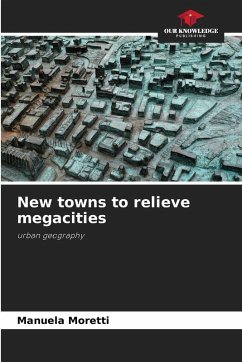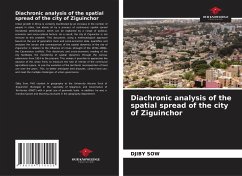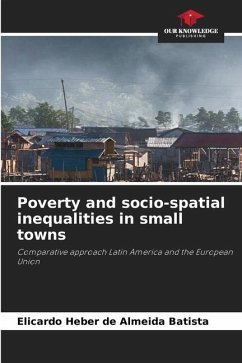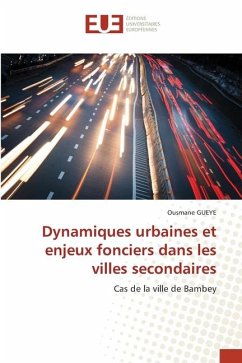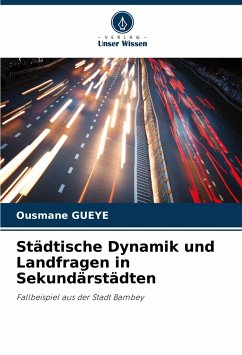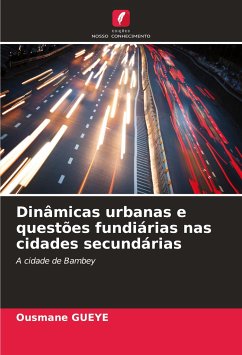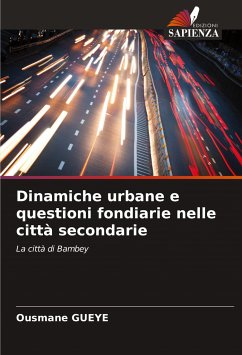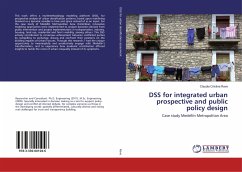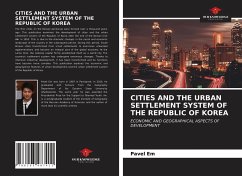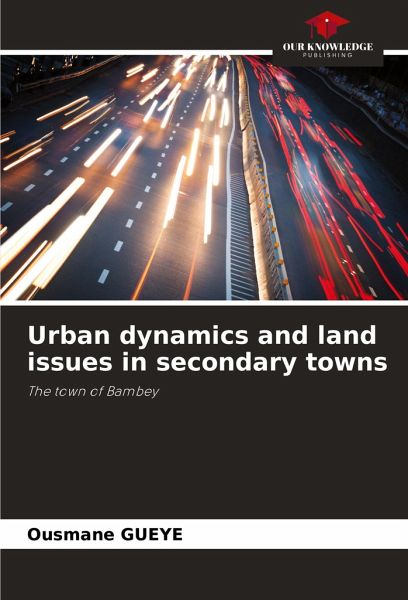
Urban dynamics and land issues in secondary towns
The town of Bambey
Versandkostenfrei!
Versandfertig in 6-10 Tagen
53,99 €
inkl. MwSt.

PAYBACK Punkte
27 °P sammeln!
In Senegal, the current urban trend shows the emergence of a new category of city that plays a full part in the country's territorial balance. These towns, characterized as secondary towns by the important functions they play in their environment, provide a link between the countryside and regional capitals, and even between the rest of Senegal and the capital. Bambey, a secondary town in the center-west of the country, is faced with the challenge of extending its municipal perimeter in view of the strong demographic pressure and development of infrastructures and facilities such as the univer...
In Senegal, the current urban trend shows the emergence of a new category of city that plays a full part in the country's territorial balance. These towns, characterized as secondary towns by the important functions they play in their environment, provide a link between the countryside and regional capitals, and even between the rest of Senegal and the capital. Bambey, a secondary town in the center-west of the country, is faced with the challenge of extending its municipal perimeter in view of the strong demographic pressure and development of infrastructures and facilities such as the university in the town, with its consequences for land. Indeed, urban growth in the town of Bambey has been spectacular for many years, and today the town has reached its territorial limits in every sense. As a result, projects to extend the city's municipal perimeter have come up against legal, political and socio-cultural constraints. This situation, coupled with the increased need for land for housing and the construction of infrastructure and facilities, has given rise to new land issues in and around the city.





